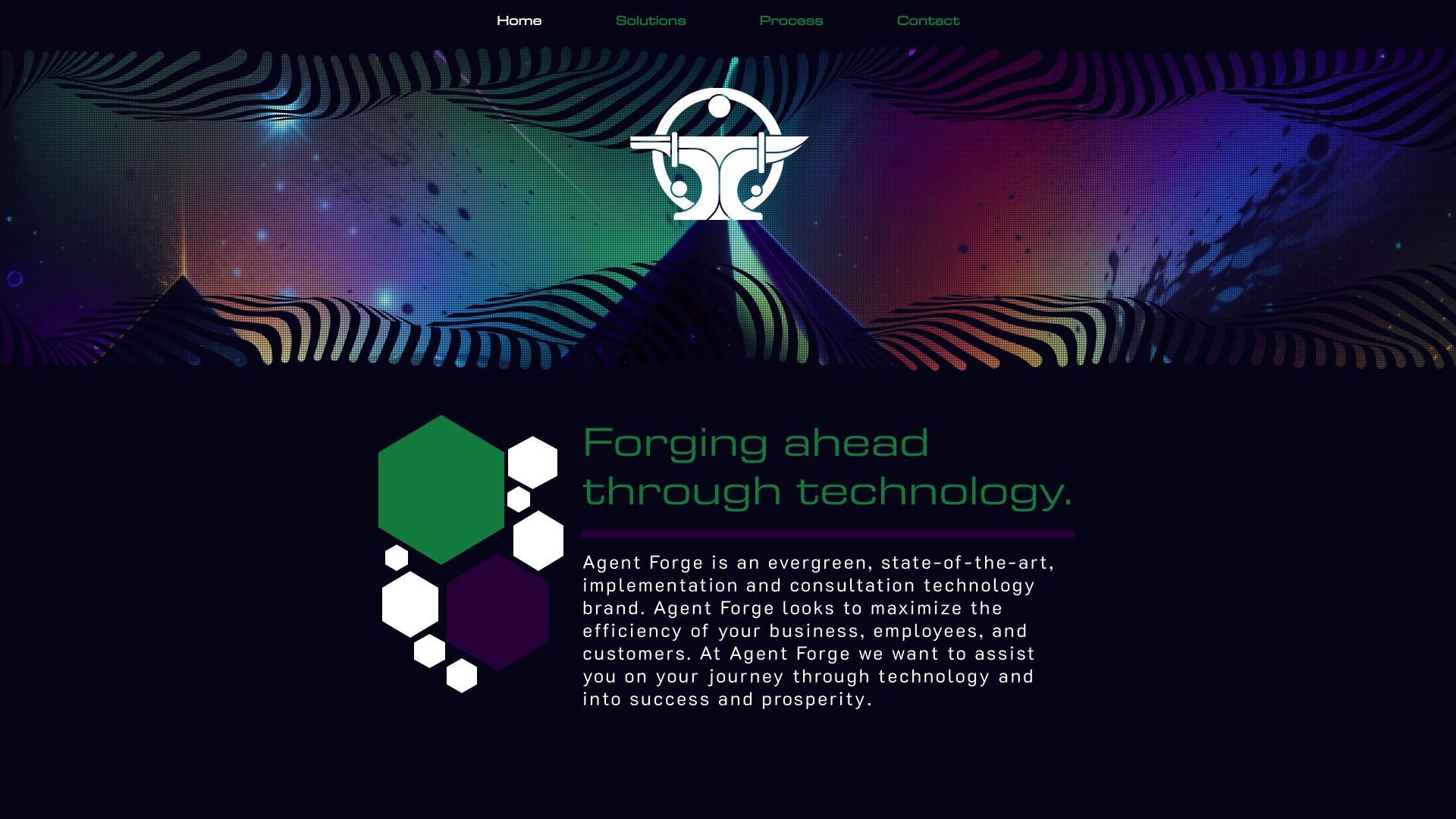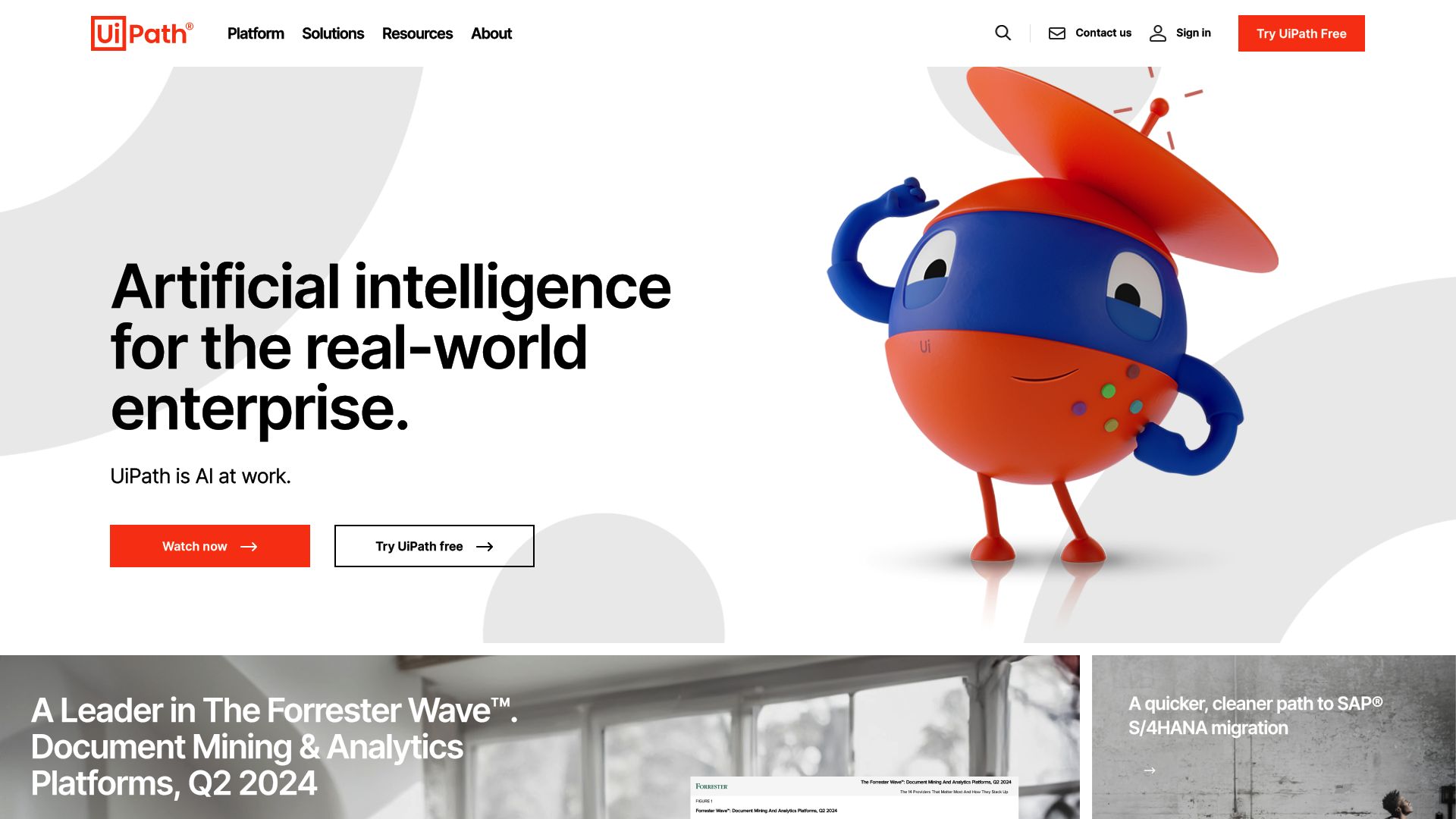Agent Forge vs. UiPath: Comparing AI Development Platforms
AI development platforms transform how businesses harness cutting-edge technology. This comparison examines Agent Forge vs. UiPath, and SmythOS, three distinct approaches to AI and automation. Agent Forge offers an open-source framework for building custom AI agents, while UiPath delivers enterprise-grade workflow automation.
SmythOS emerges as a versatile solution, combining user-friendly AI development with robust integration capabilities. We’ll explore each platform’s strengths, limitations, and ideal use cases, empowering you to choose the right tool for your AI ambitions. Whether you’re a developer seeking flexibility, an enterprise aiming for scalable automation, or a business looking to innovate with AI, this analysis provides the insights you need to make an informed decision.
Agent Forge Overview
Agent Forge empowers developers to create autonomous AI agents and cognitive architectures. This open-source Python framework accelerates the development of intelligent systems capable of automating tasks and workflows.
Agent Forge supports major language models like GPT and Claude, along with self-hosted options via Oobabooga. The platform’s flexible memory management, powered by ChromaDB, enables agents to maintain context and learn from interactions. Developers can orchestrate complex multi-agent workflows and leverage pre-built templates to jumpstart projects.
Agent Forge empowers developers to create autonomous AI agents and cognitive architectures. This open-source Python framework accelerates the development of intelligent systems capable of automating tasks and workflows.


The framework excels in rapid prototyping of AI assistants, chatbots, and expert systems. Its modular design facilitates easy integration of custom data sources and third-party APIs, making it ideal for automating business processes and enhancing productivity. Agent Forge’s low-code approach strikes a balance between accessibility and customization, appealing to both newcomers and seasoned AI developers.
The framework excels in rapid prototyping of AI assistants, chatbots, and expert systems. Its modular design facilitates easy integration of custom data sources and third-party APIs…
While Agent Forge offers powerful tools for building autonomous agents, it lacks some features found in more comprehensive platforms. The absence of a visual builder and no-code editor may present a steeper learning curve for non-technical users. Additionally, the framework does not explicitly mention features for explainability, debugging, or multimodal inputs, which could limit its applicability in certain advanced use cases.
Despite these limitations, Agent Forge’s focus on flexibility and extensibility makes it a valuable foundation for long-term AI projects. Its support for various LLMs and customizable agent architectures provides ample room for experimentation and innovation in the rapidly evolving field of AI agent development.
UiPath Overview
UiPath delivers a comprehensive enterprise automation platform that empowers organizations to discover, build, manage, and measure automation across departments. The platform’s end-to-end capabilities cover the entire automation lifecycle, from process mining to development, deployment, monitoring, and analytics.
UiPath delivers a comprehensive enterprise automation platform that empowers organizations to discover, build, manage, and measure automation across departments.
Focused on enterprise-scale automation, UiPath caters to large organizations with complex systems and stringent governance requirements. The platform excels in seamless integration, allowing businesses to connect workflows across disparate systems effortlessly. UiPath’s robot orchestration enables centralized management of a scalable robotic workforce that operates 24/7, executing automations with precision.


UiPath supports both attended and unattended automation, addressing front office tasks that require human input and back office processes that run end-to-end without supervision. This versatility makes it suitable for a wide range of business applications, from customer service to complex data processing.
UiPath supports both attended and unattended automation, addressing front office tasks… and back office processes that run end-to-end without supervision.
While UiPath offers powerful automation capabilities, it primarily focuses on structured workflow automation rather than general conversational AI or problem-solving. This specialization allows it to excel in streamlining repetitive business processes but may limit its applicability in more open-ended AI scenarios. Additionally, the platform’s enterprise focus may result in a steeper learning curve for smaller organizations or individual users looking for simpler automation solutions.
Despite these considerations, UiPath’s robust feature set, including its visual builder, debugging tools, and extensive API integrations, positions it as a formidable player in the enterprise automation space. The platform’s scalability and focus on ROI-driven automation make it particularly attractive for large-scale digital transformation initiatives.
Feature Comparison
Agent Forge and UiPath offer distinct approaches to automation, with notable feature gaps in core components and security. Agent Forge provides a flexible open-source framework for building AI agents, while UiPath delivers a comprehensive enterprise automation platform.
In core components, UiPath excels with its visual builder and no-code editor, enabling users of all skill levels to create automations easily. Agent Forge lacks these user-friendly tools, requiring more technical expertise. UiPath also offers robust debugging capabilities and supports multimodal inputs, features absent in Agent Forge.
Regarding security, UiPath provides enterprise-grade features like data encryption, IP control, and comprehensive audit logs. Agent Forge’s documentation doesn’t mention these critical security measures, potentially limiting its suitability for sensitive enterprise environments. While both platforms support API integrations, UiPath’s extensive connector ecosystem and RPA capabilities surpass Agent Forge’s more limited integration options.
| Agent Forge | UiPath | SmythOS | |
|---|---|---|---|
| CORE FEATURES | |||
| AI Agents | ✅ | ❌ | ✅ |
| Hosted Agents (Dev, Production) | ✅ | ❌ | ✅ |
| Visual Builder | ❌ | ✅ | ✅ |
| No-Code Options | ❌ | ❌ | ✅ |
| Memory & Context | ✅ | ❌ | ✅ |
| Autonomous Agents | ✅ | ❌ | ✅ |
| Explainability & Transparency | ❌ | ❌ | ✅ |
| Debug Tools | ❌ | ✅ | ✅ |
| Multimodal | ❌ | ❌ | ✅ |
| Problem-Solving Capabilities | ✅ | ❌ | ✅ |
| Multi-Agent Collaboration | ✅ | ❌ | ✅ |
| Audit Logs for Analytics | ❌ | ✅ | ✅ |
| Work as Team | ❌ | ❌ | ✅ |
| Bulk Work | ❌ | ✅ | ✅ |
| Agent Work Scheduler | ❌ | ✅ | ✅ |
| Logs & Monitoring | ❌ | ✅ | ✅ |
| SECURITY | |||
| Constrained Alignment | ❌ | ❌ | ✅ |
| Data Encryption | ❌ | ✅ | ✅ |
| OAuth | ❌ | ✅ | ✅ |
| IP Control | ❌ | ✅ | ✅ |
| COMPONENTS | |||
| Foundation AIs | ❌ | ❌ | ✅ |
| Huggingface AIs | ❌ | ❌ | ✅ |
| Zapier APIs | ❌ | ❌ | ✅ |
| All other APIs, RPA | ❌ | ✅ | ✅ |
| Classifiers | ❌ | ❌ | ✅ |
| Logic | ❌ | ✅ | ✅ |
| Data Lakes | ❌ | ❌ | ✅ |
| DEPLOYMENT OPTIONS (EMBODIMENTS) | |||
| Deploy as API | ❌ | ❌ | ✅ |
| Deploy as Webhook | ❌ | ❌ | ✅ |
| Staging Domains | ❌ | ❌ | ✅ |
| Production Domains | ❌ | ❌ | ✅ |
| API Authentication (OAuth + Key) | ❌ | ✅ | ✅ |
| Deploy as Site Chat | ❌ | ❌ | ✅ |
| Deploy as Scheduled Agent | ❌ | ❌ | ✅ |
| Deploy as GPT | ❌ | ❌ | ✅ |
| Scalability | ❌ | ✅ | ✅ |
| DATA LAKE SUPPORT | |||
| Hosted Vector Database | ❌ | ❌ | ✅ |
| Sitemap Crawler | ❌ | ❌ | ✅ |
| YouTube Transcript Crawler | ❌ | ❌ | ✅ |
| URL Crawler | ❌ | ❌ | ✅ |
| Word File Support | ❌ | ✅ | ✅ |
| TXT File Support | ✅ | ❌ | ✅ |
Best Alternative to Agent Forge and UiPath
SmythOS emerges as the superior alternative to Agent Forge and UiPath, offering a comprehensive AI automation platform that combines ease of use with powerful features. Our drag-and-drop interface enables users to create sophisticated AI agents without extensive coding knowledge, making it accessible to both technical and non-technical users.
Unlike Agent Forge’s limited integration options and UiPath’s focus on enterprise-level RPA, SmythOS provides a versatile ecosystem supporting a wide range of AI models, APIs, and data sources. We offer pre-built connectors and templates that significantly reduce setup time, allowing users to focus on innovation rather than implementation details.
SmythOS excels in multi-agent orchestration, enabling teams of AI agents to collaborate on complex tasks. This feature enhances efficiency and scalability, surpassing the capabilities of both Agent Forge and UiPath. Our platform also provides robust debugging tools, explainability features, and comprehensive logs, ensuring transparency and control throughout the development process.
SmythOS excels in multi-agent orchestration, enabling teams of AI agents to collaborate on complex tasks. This feature enhances efficiency and scalability, surpassing the capabilities of both Agent Forge and UiPath.
Security is a top priority for SmythOS. We implement enterprise-grade features like data encryption, OAuth integration, and IP control, addressing critical security concerns that Agent Forge lacks. Additionally, our platform offers flexible deployment options, including API endpoints, webhooks, and chatbots, providing versatility that UiPath’s more rigid structure cannot match.
By choosing SmythOS, users gain access to a cutting-edge AI operating system that not only meets current automation needs but also scales effortlessly to future demands. Our vision is to revolutionize how businesses utilize AI, making agent creation and deployment 99% faster and more accessible. With SmythOS, companies can automate mundane tasks, improve efficiency, and drive innovation at unprecedented levels, unleashing the full potential of AI across various industries.
Conclusion
Agent Forge and UiPath each offer unique approaches to automation and AI development. Agent Forge provides an open-source framework for building AI agents, appealing to developers who prioritize flexibility and customization. UiPath excels in enterprise-grade workflow automation, offering robust tools for businesses seeking to streamline operations at scale.
SmythOS, however, emerges as the superior choice, combining the strengths of both platforms while addressing their limitations. Our drag-and-drop interface and no-code editor make AI agent development accessible to users of all skill levels, surpassing Agent Forge’s technical barriers. Unlike UiPath’s focus on structured workflows, SmythOS supports a wide range of AI applications, from chatbots to complex problem-solving agents.
We offer unparalleled versatility with our 300,000+ integrations, allowing seamless connection to various data sources, APIs, and AI models. Our platform’s security features, including data encryption and OAuth support, match enterprise standards while maintaining the flexibility needed for rapid innovation. With SmythOS, you can deploy AI agents anywhere, from APIs to chatbots, scheduled tasks to GPT plugins.
Experience the future of AI development with SmythOS. Create a free account today and join the AI revolution. Unlock limitless possibilities with our powerful, user-friendly platform that’s transforming how businesses leverage AI technology.
Last updated:
Disclaimer: The information presented in this article is for general informational purposes only and is provided as is. While we strive to keep the content up-to-date and accurate, we make no representations or warranties of any kind, express or implied, about the completeness, accuracy, reliability, suitability, or availability of the information contained in this article.
Any reliance you place on such information is strictly at your own risk. We reserve the right to make additions, deletions, or modifications to the contents of this article at any time without prior notice.
In no event will we be liable for any loss or damage including without limitation, indirect or consequential loss or damage, or any loss or damage whatsoever arising from loss of data, profits, or any other loss not specified herein arising out of, or in connection with, the use of this article.
Despite our best efforts, this article may contain oversights, errors, or omissions. If you notice any inaccuracies or have concerns about the content, please report them through our content feedback form. Your input helps us maintain the quality and reliability of our information.
